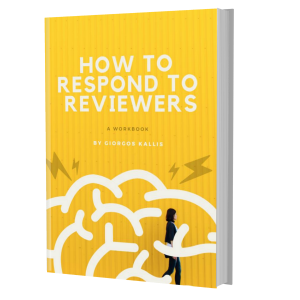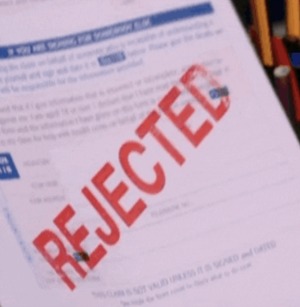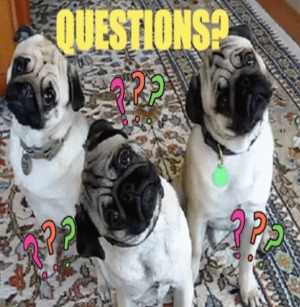How to give good feedback
Giving feedback to friends, peers or students is an important part of our life as researchers, but we never learn how to do it well. Bad feedback is harsh and unhelpful, good feedback makes you want to get better. Aaron Vansintjan is both a junior researcher and a seasoned editor and has been on both sides of feedback. In this post he shares with us his understanding of the editing process, and what it takes to give good feedback.
When I started working as an editor, I tried to look up some tips on how to edit. Surprisingly, though there are a lot of guides about how to be a good writer, I realized that there aren't many guides about how to be a good editor. This is strange, because everyone who writes needs a good editor. That means that for every writer, there should also be at least one editor. So you might think that there would be at least as much advice on editing out there as there is on writing. But there isn't.
I don't know why this is the case. But I can say that giving feedback, like writing, is not easy. It takes practice and time, and it's tiring. Because I couldn't find much information about how to edit, I had to learn as I went along. And I'm still learning. Here I write about some of the things I've learned. I've tried to make this article as general as possible, so that it is helpful for teachers, academics, people in the publishing industry, copy-editors, a friend looking over a job application, or anyone looking for advice on how they can help people around them write better.
I might say things that might seem obvious. But, speaking from personal experience, there are a lot of people out there who give bad feedback, and the obvious things (like, not being too mean) never occurred to them. I do assume that you already know how to use the editing functions on word processors like Microsoft Word, Open Office, or Google Docs (my favorite). So I won't talk about any of that. What I'm focusing on here is to describe my editing ethos: what I think good feedback looks like.
What writers want from editors
To know what makes a good editor, we have to think about what writers need in the first place. Here are a couple of reasons why writers might look for an editor:
- They want to know they're not crazy; that what they are trying to say makes sense.
- They need someone to point out the good things and the things that need improvement in their writing.
- They want to have someone to bounce ideas off of.
- To ask them what they mean, which might make sense to them, but doesn't make sense for the average reader. (I once read a writer say that the best editor is someone who constantly asks them, "what do you mean by this?")
- They want to communicate to a specific audience. They might not know the rules of the writing format (e.g. academic, journalistic), or know what the audience knows (e.g. what is common knowledge in a certain field).
So, a writer needs an editor, basically because they a) don't have total confidence in themselves, b) are stuck inside their own head, c) don't know all the rules. So, an editor is someone who makes the writing process easier, helps create a product the writer can be proud of, which will be appreciated by the intended audience.
Editing is care work
After spending some time editing, I came across this article that talks about how editing is actually care work. This was a revelation to me, because it helped me understand what I was doing and why it's important. Care work, by definition, is for others. It is not for yourself (though you might feel better about yourself after doing it). When you do care work, you do not expect a reward.
Most often, the same goes for editing. In this way, giving good feedback is a skill everyone would benefit from. What's more, care work is extremely gendered. Women tend to be better practiced at care work and do more of it, and men may not find it intuitive and would need more practice. Care work is often not acknowledged in society, and doesn't pay as well as other kind of work. So, if someone takes the time to edit your writing, you better thank them for it! Now that we've understood editing as care work, we can say some things about what editing requires.
The empathetic editor
Like care work, giving feedback requires empathy. Not just for the writer, but also for the reader! As you are editing, think about what someone is trying to say, what the reader will understand, and how your feedback will be interpreted. This is hard, for several reasons.
First, a lot of us have trouble thinking in this empathetic way. Myself, raised as a man, I've had to work extra hard to practice listening, putting aside my own ideas, and imagining what someone else might be thinking. I had to practice making my feedback not about myself, but about the writer. It's usually never a good idea to focus on your own ideas when giving someone feedback. This is not helpful. It would be like a massage therapist asking their client for a back rub. It's not about you!
Second, it's also hard because everyone is different. How your feedback might be interpreted will vary whether you're giving it to a friend, a student, a peer, a colleague, or, heaven forbid, your boss. Depending on whom I'm editing for and how well I know them, I might spend less time softening my feedback or worrying about how my feedback will be interpreted. I'll also think a lot about what kind of confidence level the person I'm giving feedback to has, and if they might appreciate more or less positive comments or compliments.
This might sound obvious to many, but it's not—who hasn't gotten feedback that was dispiriting, mean, or unnecessarily harsh? As an editor, you want to encourage the writer to write more, and better, and not to give up.
Third, giving feedback in an empathetic way takes time and energy. When you write, you might have to think about what you want to say and what the reader will think about it. But as an editor, you have to think about how the writing makes you feel, how it could make the reader feel, and how the writer will feel about your comments! That's a lot of brain processing power. To do it well, in a way that is respectful to everyone, you need to set apart a good amount of time. Criticism is easy. Constructive criticism takes twice as much work.
Fourth, it's not always easy to give feedback because you don't know all the rules. You might not have experience in the academic field the author is writing in. Or, you don't know the employer your friend is writing a cover letter for. This is why empathy is so important: you need to be able to think about the reader, putting yourself in their shoes, even if you don't know them or have never met them. If you do this well, your feedback will be appreciated, even if you're not an expert!
What kind of feedback is appropriate?
To be a good editor, you need to know what the writer expects from you. So, before you start editing, you might need to ask a few questions, either to the writer or to yourself.
- What is the expected venue? Where will it be published? What is the audience?
- What is the writer looking for? Do they just want proofreading for grammar, or are they also expecting you to give editorial suggestions, like telling them what you think about it?
- How much time does the writer have before they need your feedback?
- How much time do you have? It might be a good idea to let the writer know this, so that they aren't surprised when it takes you months to send them feedback.
- What kind of person is the writer? Are they confident, secure, insecure? How will they respond to negative criticism?
- What is your power relationship? Are they your boss, lover, or employee? All of these matter in what kinds of feedback you would give them. How familiar can you be with them?
These are just a few questions to get you thinking. Remember that an important part of editing is your correspondence with the writer. How you talk to them, either by email, in person, or on the phone, will affect how they will interpret your feedback.
What does editing look like?
Now that I've gone through some of the basics of what editing requires, I'm going to walk you through my ideal editing process. As you will see, editing takes a lot of time. Depending on the piece, I might cut a few corners here and there. But, I've found that this process works the best for me.
-
I'll start with my first reading. I'll make basic comments: "What does this mean?" "Could you explain this more?", "I'm not sure if I know what you're saying here!", "This reads awkwardly". I'll also correct minor grammatical and formatting issues. I might make positive comments like, "I love this!" "This is great!" "Aha!" But, I won't spend too long thinking about structure or any of the big questions. I find that it helps to jot down reflections and notes to myself as I go along, which I delete later.
-
After my first reading, I'll write down my initial reaction, usually at the bottom of the text. Here I will write a paragraph for the author, answering questions like, "What is it about?" "What is its thesis?" "What does it make me think about?" "How does it make me feel?" "What do I like about it?"
Here I find that it helps me to stay positive. As a general rule, I make sure my feedback has at least one or two compliments, and these should precede any negative comments.
It also helps to tell the author what you think their piece is about, because this lets them know that they're not crazy! If the piece also needs major reworking, they might also use your summary of their main point to restructure their article. Here is a short sample:
"This is a journalistic piece about the effects of ocean acidity on the Great Barrier Reef. It argues that this is a catastrophe of unimaginable proportions. It makes me feel sad that I might never see this natural wonder in my lifetime. It made me feel really angry, like I wanted to do something about it! I liked the way you vividly described the reactions of the scientists, and how they are coping with this knowledge."
-
Then, I will go through the text again and write more comprehensive comments. I will ask myself, "Does the writing flow?" "Is the argument sound?" "What works, what doesn't?" "Who is the audience, and does it use appropriate language for them?" "What parts are unclear?" "Does the introduction match the conclusion?" "What tools could be used to better tell the story?" "How much work is needed to improve this article?" "Are there any parts that could be cut?"
Often, a comment will include the following: an explanation of what it sounds like the writer is saying, what the problem is, and my suggestion. You might recognize this approach as a conflict resolution strategy: you explain how you perceived what someone said, how it makes you feel, and what you would like from the situation. yet another way that editorial work is care work! Here's an example:
"Here, I think you're trying to say that coral bleaching is a social, political problem. But, on first reading, I was confused, and I thought you meant that it's a problem we can't solve. Maybe you could instead say something like, '...'"
After doing this, I'll summarize these comments in a second paragraph. Usually, I make comments only in terms of suggestions, and often, when the work needs serious restructuring, I'll offer authors several options of how they could improve it, for example, several possible kinds of introductions, or several ways to structure it. Sometimes, I might offer them a suggested outline of how to restructure the piece, if necessary.
- I'll reread the piece and see if I've missed anything. Did any of my comments need more explanation, or were they not clear enough? Are my comments helpful, or too harsh? Or, maybe, I'll think about whether I've made too many comments, which could be overwhelming for the author, especially if it was just a draft or if it's going to be reworked significantly. Whatever my personal opinion of the text, I'll take it out if it's not actually helpful and rewrite it to be more constructive.Then, I'll write my last comment, saying something like, "Overall, I really liked this piece. It just needs some X and Y! I look forward to reading your new version."
- Finally, I'll send the writer their piece with my comments, and will paste my written comments in the email, as well as keeping it at the bottom of the original document.
That's an idealized description of how I work. Often, I don't have much time, and I'll send a sloppy, quick version. Sometimes, writers don't actually want that much feedback. They're just looking for a short, constructive response. So, it always helps to know what's expected of you.
I hope this guide is helpful. I'd like to know if others have any other tips on editing. Do you have any bad editing experiences you'd like to share? Or any questions you have about the editing process? And as a writer, what kind of editor has been helpful for you?














